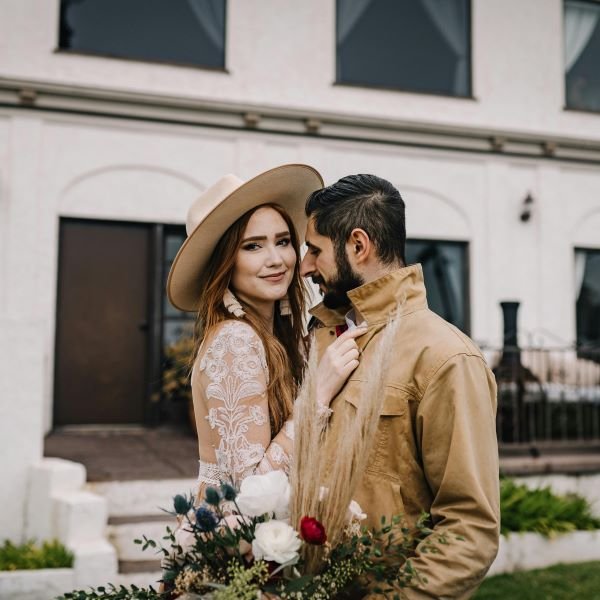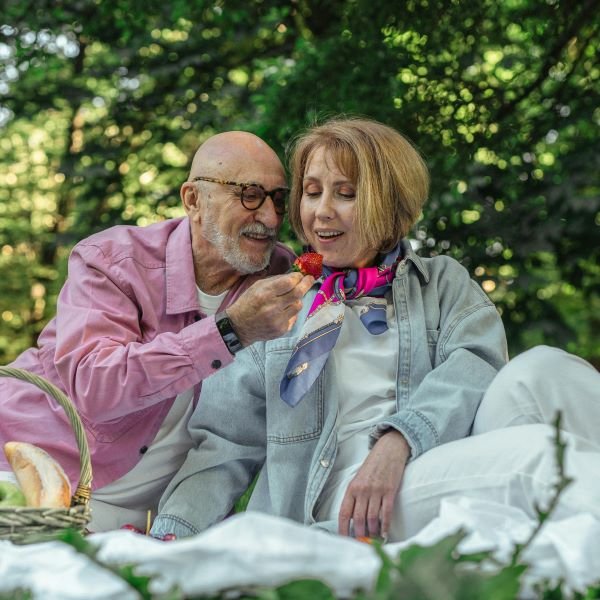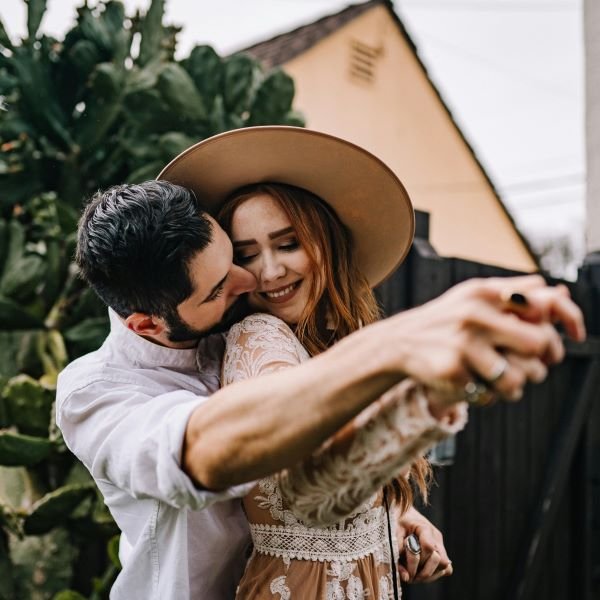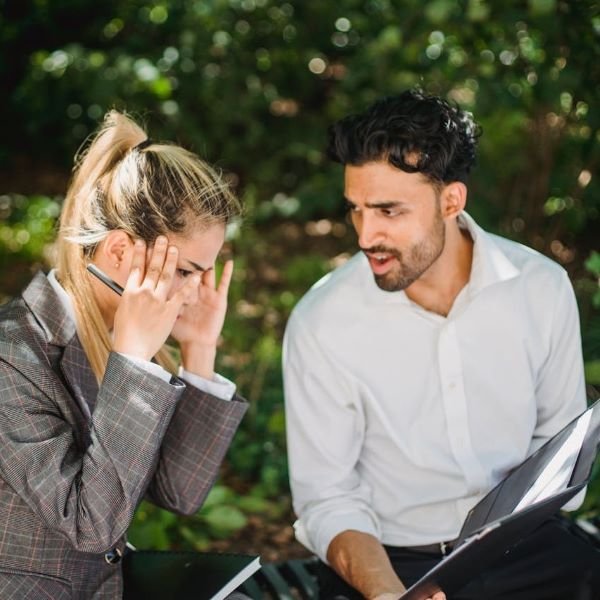Introduction
Our interactions with other people are very important because they define our personalities as well as our perspectives towards life and relationship journey. It does not matter the kind of relationship that we have with others (be it friendship, family or love); they are all meant to make us experience joy, feel complete but also face various forms of problems. These interconnections provide room for change, enable us to understand what love is and also see that indeed we can overcome some issues in relationship. This post will outline some important things that I learned from being in relationships and give ideas on how to build healthy partnerships.
Each and every relationship, regardless of its longevity, imparts certain knowledge to us. Ranging from deep emotional connections to heartbreak events, these help us grow on a personal level and increase our emotional intelligence. Reflection upon our past or current relationship will allow us recognize certain facts such as strength points and those areas needing correction within them which may be applied towards future ones thus making them better organized. By doing this, we improve not only our capacity to relate with others but also the way we understand ourselves including being empathetic.
Table of Contents
The Importance of Self-Awareness
From my experience in relationships, one thing is very important, that is being self-aware. Blaming a partner is the easiest thing to do when stuff is not going well; however, looking inside ourselves reveals some of our misdeeds. To give an example, I realized that I had the behavior of evading complex conversations due to the fear that they would turn violent. The problem remained unsolved for both parties but extended the initial pain of discomfort. Knowing this aspect about me was important as it helped me improve my communication patterns.
With this level of self-awareness whereby we can identify what makes us tick, insecure, or have needs like everybody else then we are in a position to relate and deal with others justly. To know oneself is to be able to admit one’s real nature by undergoing a very tough process called introspection. This is because when we take time alone such writing down things therapy among other related activities we will be able to realize some facts about our lives which are very important in making any relationship to be meaningful enough consisting of being genuine as well as truthful too fact it can said like creating on one side.
It is through self-awareness that we can build on honesty and originality; which form the basis of interacting meaningfully with others. In addition, it enables us to express our needs clearly hence increasing closeness in relationships and deepening emotional connections.

Communication is a Skill Worth Mastering
Communication is a vital aspect that we have been told about and which cannot be exaggerated. At the start of my relationship, I used to think that it was obvious for my partner to understand what exactly I needed without expressing myself. As was predictable, this only served to increase frustrations as well as lead to disappointments from all quarters involved. With time, however, I came to see the immense strength in honest communication.
To communicate effectively one must be a good listener just as much as a good speaker. This involves trying to get it right rather than trying to be right. Through active listening, making use of “I” statements when communicating one’s feelings, and showing empathy, one can foster an atmosphere in which every individual is respected and supported. On top of that plain speaking requires taking some emotional risk by exposing ones deep fears and hopes. Trust and connection are created through authentic expression by both parties involved in communication. It takes effort, patience, and understanding for someone to develop this ability while being committed to one another.
Boundaries Protect, Not Restrict
The hard way taught me one more thing; setting boundaries. When I was still young in matters of dating, I thought that love and commitment were best expressed by being kind and adaptable. Nonetheless, attending to what I needed would have made me very sick with bitterness. At present, I know that one should not perceive boundaries as ways of isolation from other people but as means of guarding one’s mental and emotional well-being.
Healthy boundaries make clear on what should be acceptable or not which in turn prevent burnouts hence promoting mutual respect among individuals involved. It is also showing that we value ourselves as well respect for others’ space hence teaching people around how they should treat us. Loving oneself enough is seen through setting boundaries, which in turn allow for the development of a caring relationship. Trust is also improved and people can avoid feeling bitter when they have guidelines that show them how to interact appropriately with each other. This results into a safe and accommodating environment in the relationship where both partners recognize and obey each other’s boundaries.
Conflict Can Be Constructive
For the longest time, I considered conflict as proof that things were not working out well. In case we had any quarrels, I believed that they spelled doom for our relationship. As a result of this attitude, I used to suppress my emotions so that I keep everything calm and under control; however, this was doing more harm than good. From this experience, I discovered that there is nothing more valuable than healthy conflict for personal development and intimacy.
Disagreements become beneficial in assisting partners to know each other better when they are handled respectfully while having in mind that there is a way out if it fails. Rather than shunning conflicts, I started taking them as chances for enhancing confidence with one another. With time, I changed my perspective on conflict by being patient and composed and focusing on issues at hand rather than launching personal offensives; then I saw it as an instrument through which closeness could be enhanced. Constructive conflict also involves actively solving problems and working together to come up with solutions that respect each person’s point of view. Conflict makes relationships stronger and more resistant when it is overcome together as partners.
Love is a Verb, Not Just a Feeling
It is very easy to be carried away by the first rush of feelings and sexual attraction, but real love is all about what you do. I learned from one relationship that love should always be shown through continuous actions which may not be simple such as being there for somebody, standing by the person but not forgetting about oneself.
Love is seen in the day-to-day activities that we engage in like taking an extra minute to give a hug, creating time for close interactions and giving undivided attention. Each and every day, if we regard love as something that we choose to do and not just as a feeling that may come and go then we will be able to develop relationships which are strong enough and will last long enough. Good intentions transformed into relevant communication denote active love. It means putting their needs first, making hard decisions at times, and rejoicing over what belongs to them as much as you would yours.
When expressed through doing something, love creates stronger emotional ties that overcome any problem or issue life may bring forth.

Trust Must Be Earned and Maintained
I learnt that trust, which is essential in any relationship, takes time to establish. A single very painful event undermined my belief in love by destroying the trust that underlined it. Rebuilding the same required so much investment of time and energy, including being open again for a longer period.
Trust can only develop when there is honesty, consistency and moral uprightness. Fidelity to promises, recognizing wrongdoing, as well as honesty act as stepping stones for trust despite them seen as insignificant. However, after gaining trust it should not taken for granted but rather maintained. The foundation of any relationship should be based on trust before anything else because this creates room for each person to express themselves without fear. It also means trusting that your partner has good intentions and showing forgiveness when necessary. Trust on its part creates a safe environment whereby individuals can express their vulnerability leading to closeness.
Respect is Non-Negotiable
I went against my morals in a relationship so as not to be opposed, and complied with unrighteous acts. This encounter was instrumental in revealing to me that one should have self-esteem and demand it from your other half as well. There can be no love without respect.
Respect appears as treating one another well even when we have difference of opinions, being faithful on our agreements and contracts and also communication. It is about respecting what they think and where they draw the line even when you would rather not. By doing this, one ensures that there is still some graciousness, thoughtfulness and justice in love. To respect someone means to also show gratitude – recognizing the things that your lover has done for you or continues doing. In such relationships where there is respect, each person is seen to matter and helps build the other up.
Growth is a Shared Journey
In conclusion, I discovered that for a relationship to be healthy, both individuals must be ready for growth. It is important for people to develop both at personal levels and together as couples to facilitate connections otherwise if things remain constant then it will result into discontent. One time I went out with this ex who was scared of changing while I loved changing – this dissonance caused problems and we eventually broke up.
When partners encourage one another to achieve their personal and shared objectives, they build an active relationship that continues to change over time. The relationship becomes strong as they experience new things, overcome difficulties, and make progress in their lives. Growth entails overcoming challenges and creating happiness as well as new opportunities for growth together. Such a relationship in which people grow becomes an everlasting journey characterized by increased love through overcoming every challenge encountered and achieving everything planned together serving as a source of happiness for them all.

Conclusion
It is important to think about the different relationships we have had since they help us learn a lot about love, being able to relate well with others and even personal development. The things that I have explained such as being conscious of oneself, communication, trusting and respecting someone; will always be seen in how I relate with other people because they molded me into someone who is capable of having healthy relationships. Each and every experience, whether good or bad, comes with a lesson that can help one become better if taken positively. Through learning from these lessons, one can form sincere relationships, take care of each other properly and love endlessly.
Relationship growth is a continuous process and not something that one attains after traveling a certain distance. We keep on changing and so are our needs, hopes and views which should teach us to remain adaptable enough to sustain love in its course as it follows its natural path. Progressing together – whether peacefully or through adversity – enhances the bond between us and increases mutual understanding.
In conclusion, relationships reflect our innermost thoughts such as fear, hope as well as ability to love others compassionately. This self-reflection should involve joyfully accepting the good and bad sides of being connected while doing so enriches one’s own life including enhancing their partnerships.
FAQs
Q1: How can I commence reflecting on my journey through relationships?
A1: Commence by asking yourself some vital questions. For instance, what are the common trends in your past relationships? From your good and bad experiences, what can you say that you have learned? This is where journaling or talking to some close friend/third party may be of help because it gives one clarity too.
Q2: In what ways can I make communication better with my partner?
A2: Engage in active listening, concentrating entirely on the message communicated by your partner and refraining from formulating a counter-argument. Ensure that you use “I” statements to communicate your feelings without assigning any form of blame and also make sure that you check whether there is continued communication well.
Q3: What are signs showing people have put appropriate division lines?
A3: It is right for one to think he or she has enough space, time and does not intrude into the other person’s space or take too much of his or her emotions because that is mutual respect which means healthy boundaries. You should feel at ease when stating what you want without being afraid that something bad will happen to you because of it.
Q4: How can trust be reconstructed following a breach?
A4: Trust is rebuilt through being consistent over time, having patience and taking positive steps towards this end. To achieve this, people need to work as a team, whereby there is room for each one’s mistakes but learning from them so that they may be corrected in future.
Q5: Importance of growth in relationships?
A5: Relationship needs growth otherwise becomes boring. Personal development creates an ever-changing union fit enough to overcome vicissitudes.



